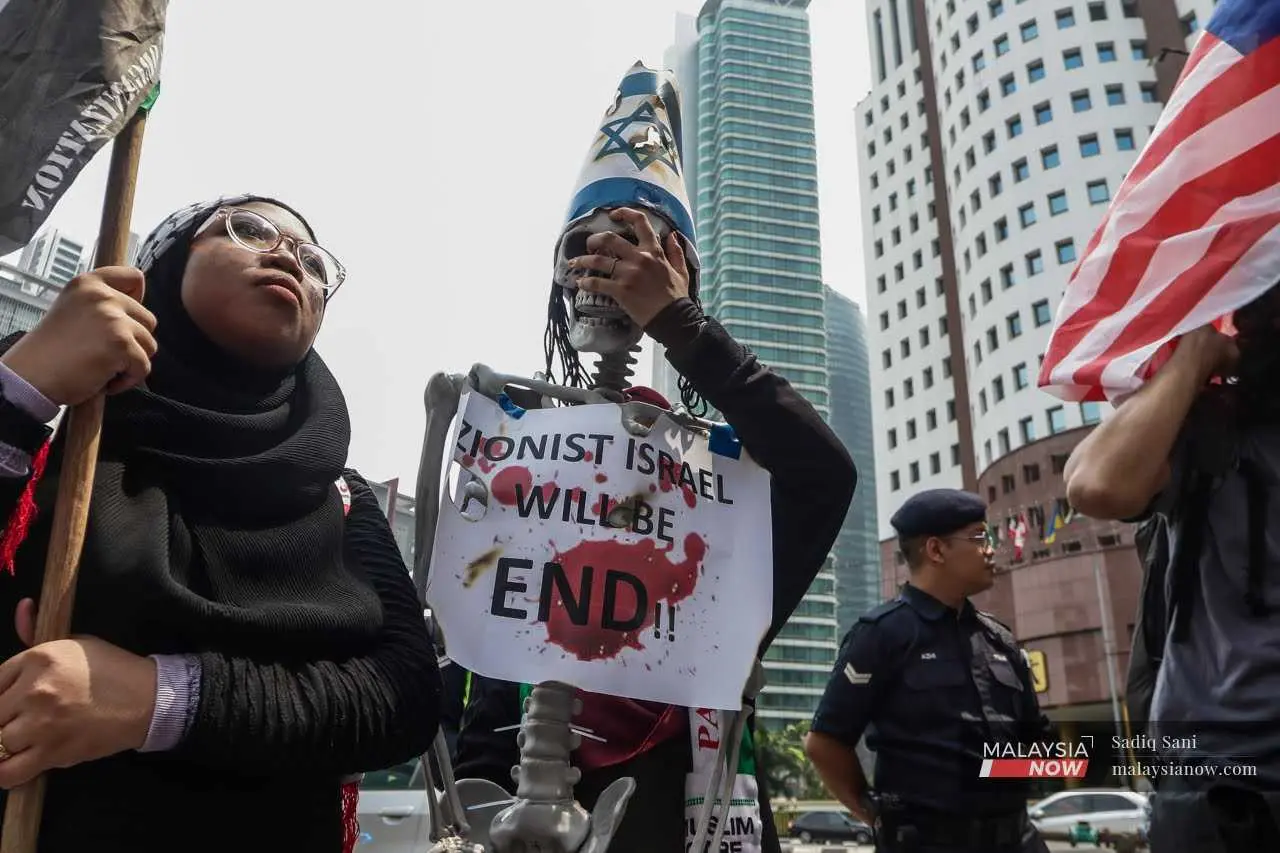Marking Al-Quds Day in times of genocide
The focus on Al-Quds, or Jerusalem, is due to its symbolisation of Palestinian unity.
Just In
In 1980, not long after the Islamic Revolution in Iran, the Iranian leader Ayatullah Khomeini declared the last Friday of Ramadan as Al-Quds Day as a sign of Muslim unity against Israel and in support of the Palestinian people.
This was the first time that a special day for the liberation of Palestine was celebrated internationally.
Al-Quds is the Arabic name for Jerusalem, the city considered holy by Christians, Muslims and Jews.
The choice of Al-Quds, one of the three holiest sites in Islam, is due to its symbolisation of Palestinian unity.
Since this declaration, Al-Quds Day has been marked with rallies and speeches by Muslims around the world, who gather after Friday prayers at the symbols of Zionist occupation in their respective countries.
In Malaysia, Muslims have been celebrating Al-Quds Day for decades with demonstrations in front of the US embassy in Kuala Lumpur.
This year, Al-Quds Day falls on Apr 5, and is likely to attract even more attention in view of the current Israeli atrocities in the Gaza Strip, in which more than 30,000 people have been killed so far, the overwhelming majority of them civilians, women and children, as confirmed by UN organisations.
But even before the Israeli genocide in Gaza began last October, there were growing numbers of demonstrators in the US, Europe, Asia and Africa marking Al-Quds Day, with Muslims usually protesting after Friday prayers to draw attention to the ongoing occupation of Jerusalem.
Today, Al-Quds Day rallies have become a global phenomenon.
In Malaysia, it will take place this Friday afternoon in front of the US embassy in Kuala Lumpur.
Subscribe to our newsletter
To be updated with all the latest news and analyses daily.
